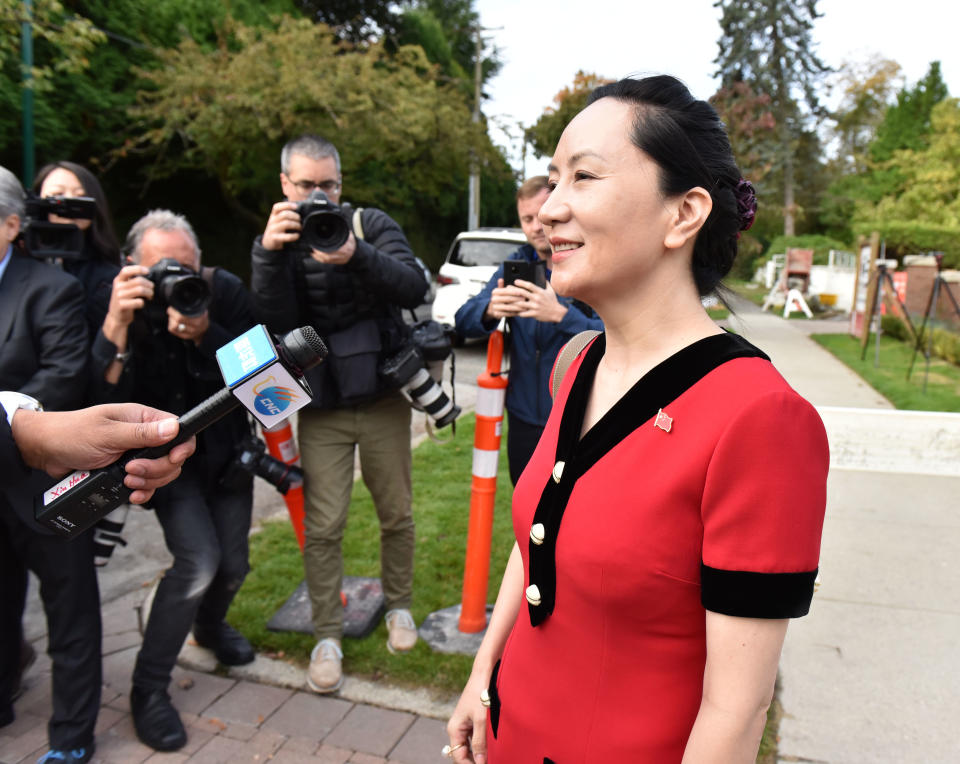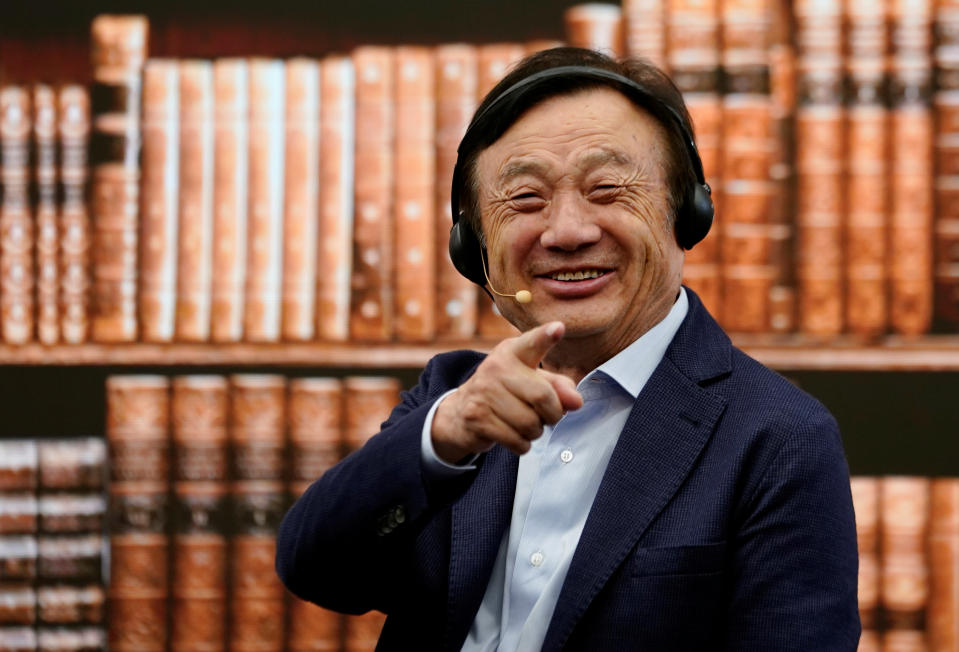Huawei exec to fight extradition to the US — Here's what to expect

Huawei’s Chief Financial Officer Meng Wanzhou begins her long-awaited legal fight in Vancouver, Canada on Monday, in an extradition hearing that will put the spotlight back on the Chinese telecommunications equipment company at the center of U.S.-China tensions.
The 47-year-old daughter of Huawei founder Ren Zhengfei has been under house arrest in Vancouver since December 2018, when she was detained on a provisional warrant from the U.S. Justice Department, during a stopover en route to Mexico City. The U.S. has requested her extradition to stand trial in the U.S. for 13 criminal counts of alleged conspiracy, fraud, and obstruction.
The hearing is expected to last four days, and will focus on the issue of “double criminality,” a central argument in extradition cases. Her legal team contends the Huawei executive should neither be held in Canada nor extradited under the countries’ extradition treaty, for alleged violations of U.S.-imposed sanctions on Iran, offenses that they argue do not amount to crimes in Canada.

“Basically, the argument she’s making — that it’s not criminal in Canada — is in the sense that the United States doesn't have jurisdiction to police the world,” said Dr. Gary Botting, Vancouver barrister and Canadian extradition law expert. “The defense team is saying that the sanctions against Iran that are imposed, somewhat arbitrarily by the United States, have no standing outside of the United States, and no application beyond citizens of the United States."
A seven-bedroom mansion and an 11 p.m. curfew
Meng stands accused of concocting a scheme to mislead banks, and circumvent those sanctions. The prosecution alleges Huawei set up a shell company known as Skycom to continue doing business with Tehran, and then lied about the relationship between the two entities to an HSBC executive, putting U.S. banks at risk.
Meng and Huawei have denied all allegations. In a statement published Monday, Huawei said, “Huawei has consistently stated, as the case is before the court, it is inappropriate for us to give specific comments on the ongoing legal proceeding. We trust in Canada's judicial system, which will prove Ms. Meng’s innocence.”
Meng’s arrest has done little to diminish her role at Huawei, where she remains the CFO, involved with daily operations, according to a company spokesperson. Since posting roughly $7.5 million in bail, Meng has been living in a gated, seven-bedroom mansion, estimated to be worth as much as 16 million Canadian dollars. While she is required to stay in Vancouver, she has been allowed to operate relatively freely, though she is required to wear an ankle bracelet and confined to an 11 p.m. curfew.

Meng recently described her year in detention as one fraught with “fear, pain, disappointment, helplessness, torment, and struggle.”
Should the Canadian judge hearing the case find that the prosecution has not met the requirement to show double criminality, absent other charges, Meng will be discharged, leaving her beyond the grasp of the U.S. The defense argument could prove an uphill battle, given the Canadian courts’ recent interpretation of double criminality. Botting said the Supreme Court of Canada has “made it clear” that it's adequate for a mere “element of criminality” to substantiate the double criminality requirement.
“That’s very far reaching, but basically that is the position that Canada has taken the last five to 10 years of extradition cases. When they have a situation like this, it’s always the lowest common denominator,” he said.
“It used to be that you had to import the entire situation into Canada, and say, ‘Under these circumstances, would this be criminal?’”
‘It’s a national security effort’
Meng’s trial comes as Washington looks to de-escalate tensions with Beijing. Last week, President Donald Trump and Chinese Vice Premier Liu He signed a “Phase 1” trade agreement, after a bitter 18-month battle between the world’s two largest economies.
Still, Huawei remains in the Trump administration’s crosshairs. The White House has accused the company of stealing trade secrets and argued that Ren’s association with the Chinese military makes Huawei a national security risk. Last year, the Commerce Department placed the company on its Entity List, barring U.S. companies from selling components to the Chinese corporation, though it has since offered some exemptions.
Secretary of State Mike Pompeo reiterated the administration’s concerns in an address to Silicon Valley business leaders last week. “We’re putting our allies and partners on notice about the massive security and privacy risks connected to letting Huawei construct their 5G networks inside of their countries,” he said. “This isn’t about selling American stuff. It’s not an American commercial effort. It’s a national security effort.”
Akiko Fujita is an anchor and reporter for Yahoo Finance. Follow her on Twitter @AkikoFujita
Alexis Keenan is a reporter for Yahoo Finance. Follow her on Twitter @alexiskweed.
Read more:
'That will leave the U.S. behind': Huawei CEO Ren Zhengfei speaks with Yahoo Finance
Huawei CEO on partnerships with the U.S.: ‘We have to be more cautious’
Inside Huawei’s $1.5 billion ‘European town’ campus in China
Follow Yahoo Finance on Twitter, Facebook, Instagram, Flipboard, LinkedIn, YouTube, and Reddit.

